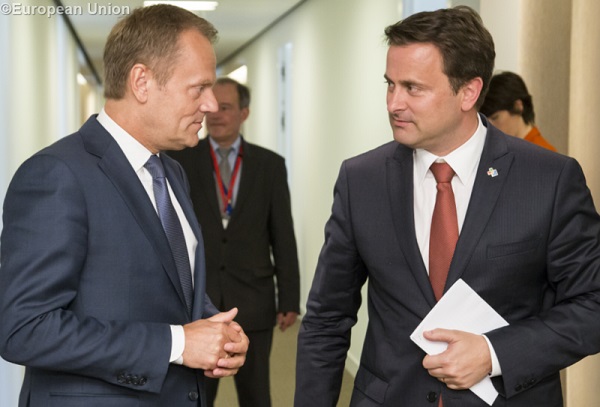
The European Council being held on 28 and 29 June 2016 will be dominated by the outcome of the referendum on the UK's membership in the European Union.
Chaired by Donald Tusk, the Council will an opportunity for British Prime Minister David Cameron to explain the situation in the UK after the vote. The following day, the 27 remaining Heads of State and Government will meet informally to discuss the political and practical consequences of the referendum result. They will also engage in discussions on the future of the EU.
The leaders will also be discussing the issue of migration. They will examine the situation in the central Mediterranean and cooperation with third countries of origin and transit, and will review the implementation of the EU-Turkey declaration of 18 March 2016 and the closure of the Western Balkans route.
Leaders will be calling for enhancing the single market, with a focus on digital strategy. Moreover, they will approve the country-specific recommendations presented as part of the 2016 European Semester and will evaluate the first results of the European Fund for Strategic Investments (EFSI) in the presence of the president of the European Investment Bank (EIB), Werner Hoyer.
Regarding external relations, the European Council will be discussing the cooperation between the EU and NATO in the presence of Secretary General Jens Stoltenberg, ahead of the NATO summit which will be taking place in Warsaw on 8 and 9 July 2016.
To prepare for the discussions at the European Council, Xavier Bettel will be participating in a preparatory Benelux meeting with his Belgin and Dutch counterparts, Charles Michel and Mark Rutte.
Photo by EU (L-R): Donald Tusk; Xavier Bettel








